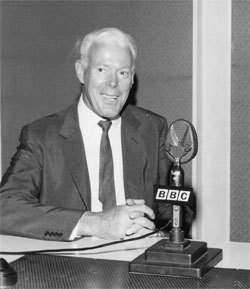Drugs 17July 1986
Trevor Leggett was head of the Japanese Department of the BBC.

This is one of his broadcasts to Japan
Zubari for 17 July 1986
Periodically in Britain there is a wave of public anxiety about drug-taking, especially among young people. This brings a number of letters from experts in the field of addictive drugs, which are published in the newspapers. Some of them simply emphasize things which everyone knows, but which are somehow forgotten.
For instance, one of the experts pointed out that alcohol causes far more damage than cannabis, or tobacco. Smoking cigarettes, he points out, causes lung cancer, but it does not cause traffic accidents; or fights, or rapes. But alcohol does.
Very interesting is the change in attitudes which has taken place in the last 200 years. Today, nearly all the speeches and articles about drug addiction place some of the blame on ‘society’. It is said that ‘society’ has somehow failed to provide an interesting and rewarding life for young people. That is why some of them begin to take drugs. But 200 years ago, and in the last century especially, the attitude was: ‘Let everyone have free access to all drugs. The weak people will, it is true, become addicted. Then they will die. But weak people will fail in life in any case, because they are weak. We cannot protect people from their own weakness. Everyone must be free to choose.’
In Victorian times, after Darwin, it was even thought that society would benefit by elimination of those who could not control themselves. On the Darwinian principle of “survival of the fittest”, the weak would disappear, and the strong would survive.
I have a copy of the first edition of the Encyclopaedia Britannica, which was published in 1771. Here are a few extracts from what it says about opium:
Opium is at present highly esteemed: it is one of the most valuable of the simple medicines….
Taken internally it removes melancholy, eases pain, and brings on sleep.
Its first effect is to make the taker cheerful, as if he had drunk a moderate amount of wine. At the same time, he becomes bold, and above the fear of danger.
For this reason, the Turks always take it before going into battle.
A too big dose brings on a sort of drunkenness, cheerfulness and loud laughter at first and then relaxation of the limbs, loss of memory, and giddiness.
The pupils dilate. (Then various other symptoms are given, on opium poisoning). Finally, too much opium brings on death.
The book gives a warning against becoming addicted. But that is all. It would be like advice today to drinkers, not to become habitual drunkards.
It is estimated that in Victorian England – that is to say from 1837 up to 1900 – the average intake of opium per head of the population would have corresponded to one modern doctor’s therapeutic injection of morphine every three days.
Sometimes when the debate on drugs comes up, I create a small sensation by pointing out that nearly all the famous Victorians, like the poets Browning and Tennyson, and great scientists like Darwin himself, all used opium.
Sometimes people look at me suspiciously, and even ask: “And do you take opium?” I just say: “Look at my pupils”. Opium dilates the pupils, but mine are very small. As a matter of fact, this is because I have a little glaucoma in the eyes; I have to take drops, which, incidentally, contract the pupils. But not many people know such things. So, I can clear myself of the accusation of taking opium.
I admit, that morphine contracts the pupils. So, I could be accused of taking morphine. But not many people know that fact, either.
© Trevor Leggett